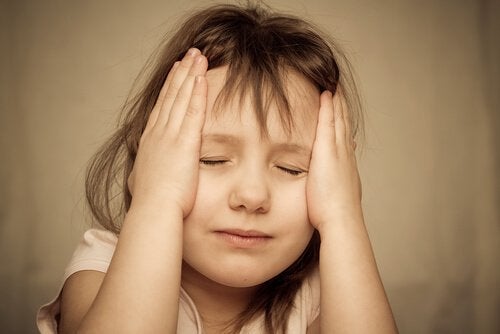Childhood traumatic experiences leave a legacy in adulthood. It’s a fact that underlies popular wisdom, but how do these traumatic experiences influence children’s lives, how do they affect their behavior?How do they influence the way you learn?
A recent study looked at negative early childhood experiences, including “incarceration. “Physical and psychological abuse prevents learning and behavioral development from preschool age. The study was conducted by researchers at the Johnson Robert Rutgers School of Medicine and published in Pediatrics, a journal of the American Academy of Pediatrics.
- According to the researchers.
- The study found that children in large urban areas exposed to traumatic events in early childhood had an increased risk of learning and behavioral problems from kindergarten.
Researchers examined data from other studies that collected adverse childhood experiences, as reported by the lead author, as well as teacher-informed results on academic performance and behavior during preschool education. This step was chosen because of evidence that it is a period in a child’s life when his academic performance and social skills can be predicted.
The results of the analysis indicate a pattern in which children who had the highest number of adverse experiences had below-average academic and social behavior, language and literacy skills were below normal, in conditions of poor attention and aggression on the part of adults, concerns about the behavior of these children have increased.
”The results of our study are important because they highlight important risk factors for future academic struggles, which adds to the risk of poor health outcomes, as they are associated with early childhood trauma exposure,’ the researchers explain. between educators and health professionals to support at-risk children and their families. ?
Protecting children does not mean putting them in a bubble, however, when they are young, their understanding of the world and the way they interpret what happens around them is not the same as when we are adults.
Psychologist Jesús F. J. Ramrez Cabas explains that traumatic experiences before age 11 generate three times more emotional and behavioral problems than if they had occurred later, the psychological impact of these situations tends to persist and increase over time.
However, parents tend to underestimate the intensity and duration of their children’s stressful situations, reactions that vary depending on age, intellectual ability, personality, and personal aspects.
The impact adults leave on children also explains that it has a huge effect on their ability to remember traumatic experiences. For example, the traumatic nature of a death can make children feel powerless.
In general, the most common problems caused by post-traumatic stress and other forms of anxiety are bereavement, depression, aggressive and stimulating behaviors, physical symptoms, low self-esteem, and academic and social difficulties.
When a child experiences a traumatic experience, the most important thing is to act as quickly as possible to avoid the effects of post-traumatic stress, which can occur in the form of anxiety, depression and other disorders, which should be treated if the syndrome appears (which can occur even three months after the event).
You don’t have to wait for this to happen, but it’s a good idea to teach your child to relax and change negative thoughts to positives right away; In addition, it is necessary to encourage him to express his feelings and opinions.
It is also important to use techniques to divert your thinking to more constructive or distracting aspects, such as playing, exercising, or participating in group activities, and it is very common for children to blame themselves for a disaster or the loss of a loved one. In that sense, it’s important to talk to them so it doesn’t happen.
Another important action to take is to keep children away from information about the event, whether through the media, especially television, to prevent them from seeing related images.

